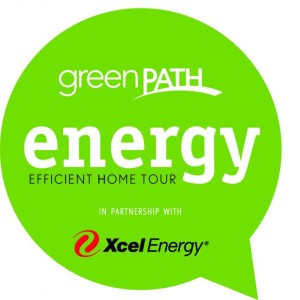This is the last weekend (including Thursday) of the Fall 2013 Parade of Homes(sm) Tour. It’s also the last and only weekend for the Remodeler’s Showcase.
NIH Homes has three custom, luxury homes on the Parade of Homes(sm) Tour this year. The Parade of Homes(sm) is a great way to see all the latest trends in home building and a great way to get ideas for your next new home.
In addition to seeing all the latest ideas in home building and remodeling the Parade of Homes(sm) is also a great way to get some fantastic information about Green Building. This press release from the BATC explains the Green Path Energy Efficient Home Tour within the Fall Parade of Homes(sm) tour.
—
 This Fall, the Parade of Homes will again include the Green Path Energy Efficient Home Tour sponsored by Xcel Energy. This tour-within-a-tour highlights Parade Homes(sm) that have been independently inspected and rated for energy efficiency by a Residential Energy Services Network (RESNET) rater, and have received a Green Path Home Performance Report (HPR). A total of 140 homes are taking part in the energy tour and can be found in the Guidebook and online.
This Fall, the Parade of Homes will again include the Green Path Energy Efficient Home Tour sponsored by Xcel Energy. This tour-within-a-tour highlights Parade Homes(sm) that have been independently inspected and rated for energy efficiency by a Residential Energy Services Network (RESNET) rater, and have received a Green Path Home Performance Report (HPR). A total of 140 homes are taking part in the energy tour and can be found in the Guidebook and online.
Minnesota’s Green Path(sm)
MN Green Path is a program of the Builders Association of the Twin Cities (BATC). Launched almost three years ago, MN Green Path provides homebuyers and homeowners with a convenient tool to help them assess a home’s expected energy use in the form of the Green Path Home Performance Report (HPR).
BATC recognized that green-build programs were great for the small slice of the buying public that wanted and could afford a high-level of holistic green features. But the reality is that most homebuyers simply won’t or can’t afford to go super green. It also recognized that most homebuyers can’t easily assess all of the factors that contribute to a home’s energy efficiency. MN Green Path bridges these two realities.
HPR is the Key
First, the Green Path HPR provides current and future homeowners with a clear and concise document verifying the results of independent RESNET energy testing, graphically presenting both the home’s HERS score and ACH50 (see below). For those who do want a higher level of green, Advanced and Master Green Path Certifications expand the HPR to include a complete listing of the green features built into a home that are above the required building code.
The ultimate goal of MN Green Path is to give homebuyers a measuring tool just like the Miles per Gallon window sticker they’ve come to rely upon when they buy a new car. Armed with easy-to-understand and comparable energy and green information about a home, homebuyers are better able to assess all aspects of a home before they buy.
RESNET Testing and the HERS Score
RESNET is a California-based national association of home energy raters and energy-efficiency mortgage lenders that created the Home Energy Rating System (HERS) index to ensure a standardized, performance-based measurement for energy efficiency in homes.
RESNET certifies their independent raters who conduct inspections in homes under construction to gather data, which is then fed into their computerized programming to establish the home’s HERS Index as well as the ACH50 (Air Exchange index). The resulting HERS is indexed against a reference home, which is an imaginary home of the same size and shape as the home being rated, and based on the 2004 International Energy Conservation Code. The reference home scores a HERS Index of 100, while a net zero energy home scores a HERS Index of 0.
Any rating under 100 indicates better energy efficiency than the reference home; over 100 means the home will use more energy. HERS scores in older homes with little insulation, leaky windows and outdated construction techniques score well over 100. In Minnesota, a new home built just to meet our energy and building codes would test at about 80 HERS.
The Fall 2013 Parade of Homes is sponsored by Wells Fargo Home Mortgage.

